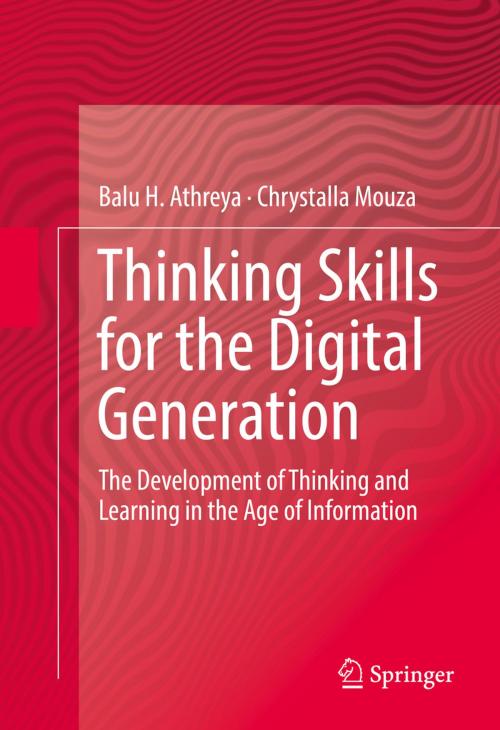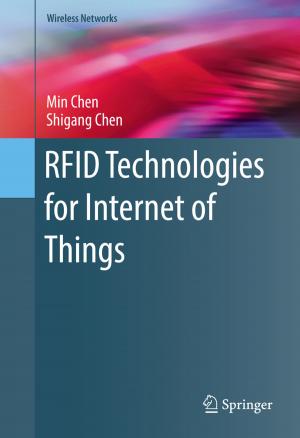Thinking Skills for the Digital Generation
The Development of Thinking and Learning in the Age of Information
Nonfiction, Reference & Language, Education & Teaching, Teaching, Computers & Technology, Educational Theory, Educational Psychology| Author: | Balu H. Athreya, Chrystalla Mouza | ISBN: | 9783319123646 |
| Publisher: | Springer International Publishing | Publication: | December 19, 2016 |
| Imprint: | Springer | Language: | English |
| Author: | Balu H. Athreya, Chrystalla Mouza |
| ISBN: | 9783319123646 |
| Publisher: | Springer International Publishing |
| Publication: | December 19, 2016 |
| Imprint: | Springer |
| Language: | English |
This important text synthesizes the state of knowledge related to thinking and technology and provides strategies for helping young people cultivate thinking skills required to navigate the new digital landscape. The rise of technology has resulted in new ways of searching and communicating information among youth, often creating information “overload”. We do not know how the new technologies will affect the ways young people learn and think. There are plenty of warnings about the dangers of information technology, but there is also enormous potential for technology to aid human thinking, which this book explores from an open-minded perspective.
Coverage Includes:
- An up to date review of the literature on thinking skills in general, and in relation to technology.
- Practical guidelines for thinking with technology.
- A scholarly review of the characteristics of the digital generation.
- A discussion of the various steps involved in the thinking process.
- A historical context of the Information Age and the transition from oral history, to printing press, to the Internet.
Thinking Skills for the Digital Generation: The Development of Thinking and Learning in the Age of Information is an invaluable reference for educators and research professionals particularly interested in educational technology, and improving thinking and problem-solving skills.
This important text synthesizes the state of knowledge related to thinking and technology and provides strategies for helping young people cultivate thinking skills required to navigate the new digital landscape. The rise of technology has resulted in new ways of searching and communicating information among youth, often creating information “overload”. We do not know how the new technologies will affect the ways young people learn and think. There are plenty of warnings about the dangers of information technology, but there is also enormous potential for technology to aid human thinking, which this book explores from an open-minded perspective.
Coverage Includes:
- An up to date review of the literature on thinking skills in general, and in relation to technology.
- Practical guidelines for thinking with technology.
- A scholarly review of the characteristics of the digital generation.
- A discussion of the various steps involved in the thinking process.
- A historical context of the Information Age and the transition from oral history, to printing press, to the Internet.
Thinking Skills for the Digital Generation: The Development of Thinking and Learning in the Age of Information is an invaluable reference for educators and research professionals particularly interested in educational technology, and improving thinking and problem-solving skills.















